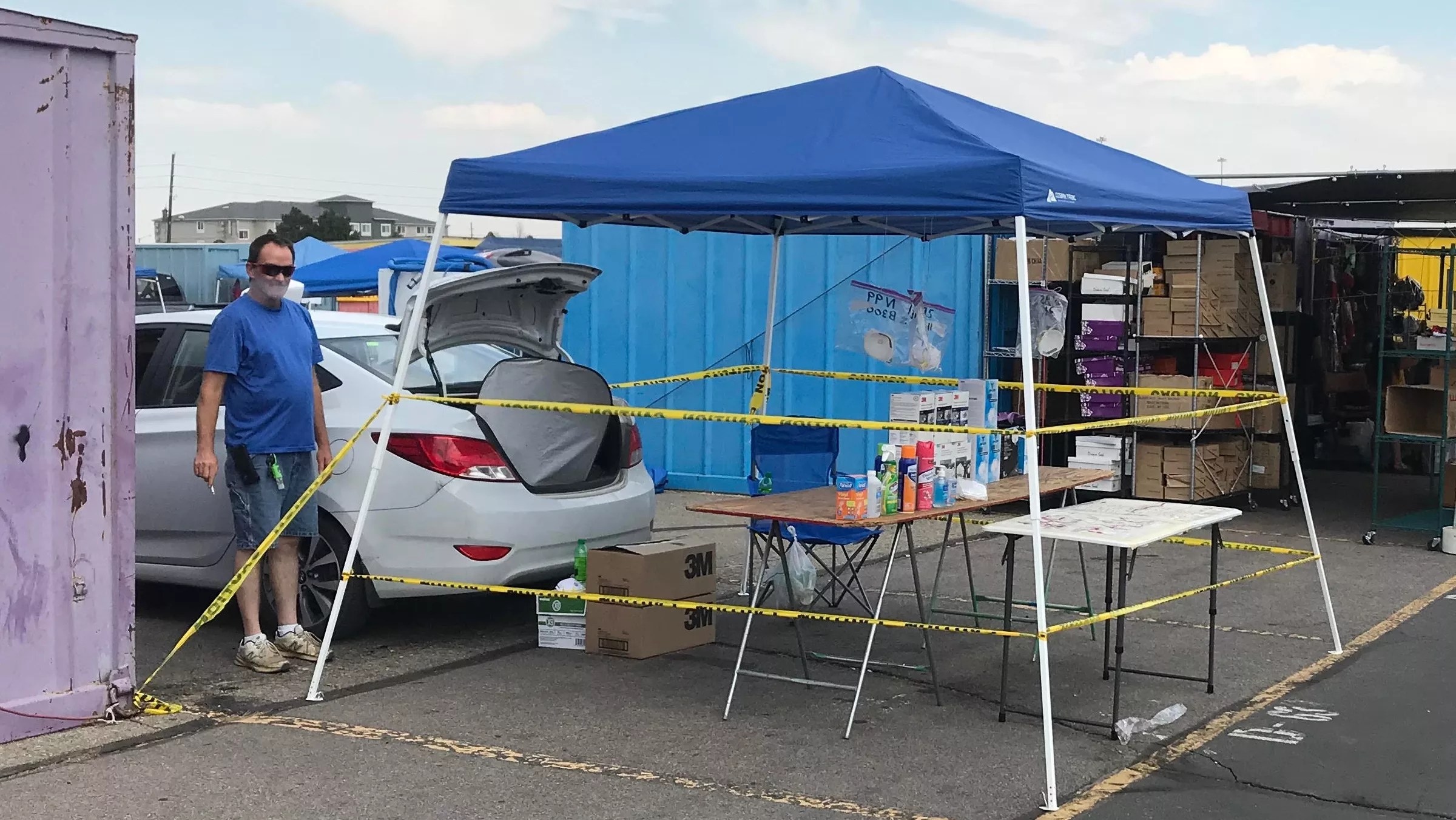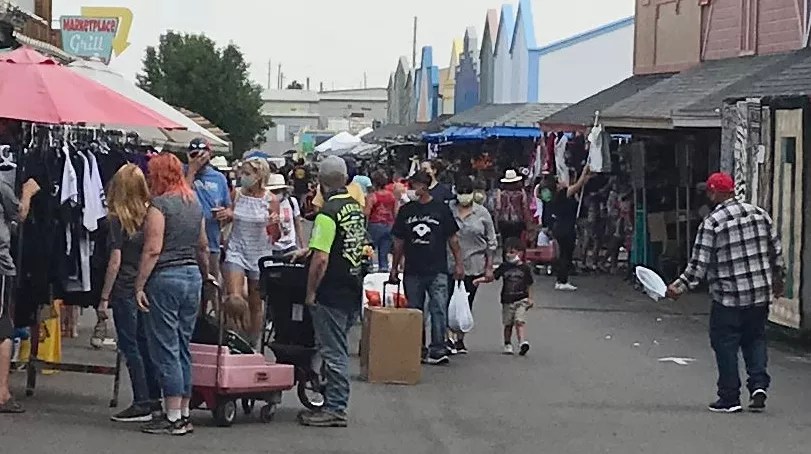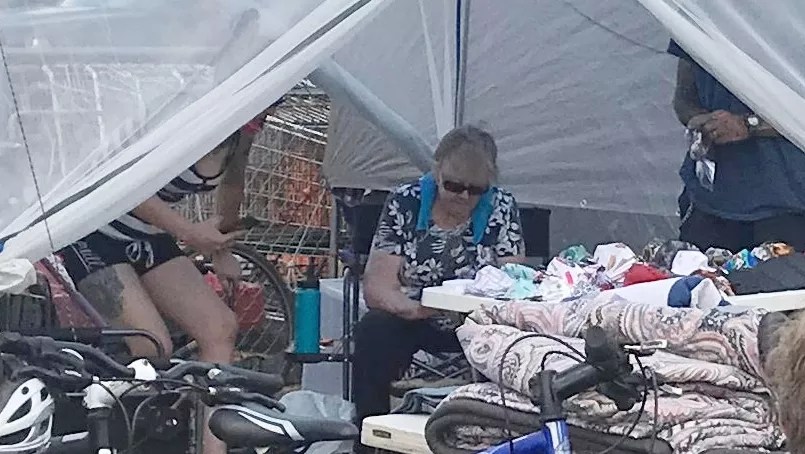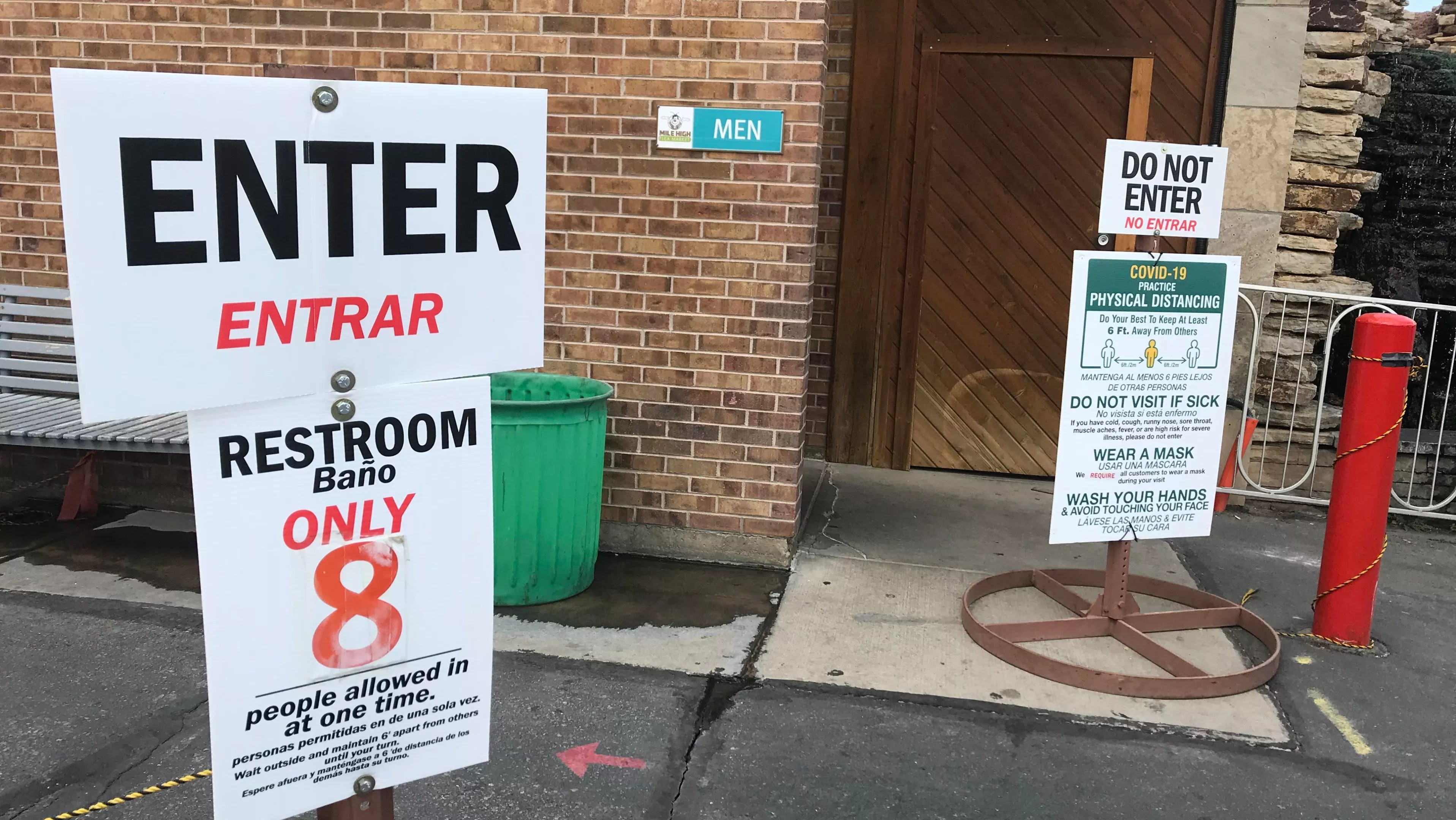
Photo by Michael Roberts

Audio By Carbonatix
At this stage of the COVID-19 pandemic in Colorado, mask usage has become a study in demographics, and shifts are frequent. Members of some groups are more apt to wear a facial covering than they once were, while others continue to resist doing so despite plentiful evidence that donning one is the best way to prevent infection.
Witness our recent visit to Mile High Flea Market, a Denver-area tradition located in Henderson, a community in Adams County, where white attendees were almost as likely to have an unencumbered face on Saturday, August 8, as might have on April 2, the day before Governor Jared Polis first advised Coloradans to mask up in public.
By our estimate, eight out of every ten Caucasian men and five out of every ten Caucasian women hadn’t put any cloth between their exhalation spots and the rest of the world.

Proper mask usage was around 70 percent at Mile High Flea Market on August 8.
Photo by Michael Roberts
Mile High Flea Market actually draws a crowd that’s predominantly Latinx, an ethnicity that has been unfairly accused of eschewing masks by the likes of North Carolina Senator Thom Tillis, who tried to blame his state’s rising infection numbers on irresponsible Hispanics during a telephone town hall last month. Yet a Pew Research study showed that as of June, 74 percent of Latinx adults said they wore masks in stores and other businesses, as compared to 62 percent of white adults.
This percentage jibes with our observations on August 8. Overall, about 30 percent of the folks we saw at Mile High Flea Market either skipped masks or wore them improperly, with their nose, their mouth or both exposed.
That meant 70 percent had facial coverings, including two women of our acquaintance who are COVID-19 survivors and know firsthand how important it is to avoid contracting the disease again.

Many employees were mask-free whether they were waiting on customers or not.
Photo by Michael Roberts
These percentages were especially intriguing given the setup at Mile High. Most of the business on the vast, eighty-acre property is conducted outside, where many people incorrectly believe mask use is unnecessary even when others are nearby. While some operations are enclosed, with doors that open and shut, the majority of them, including permanent structures and temporary tents, are open to the elements.
When we visited right around noon, temperatures were already blistering, making mask use sweaty and uncomfortable at times for those strolling the aisles and, especially, employees toiling for hours. The conditions were likely a factor in a lower percentage of mask use by workers than patrons. Around 50 percent of the folks behind counters or tables at booths had nothing over their faces and, unfortunately, few of them covered up while waiting on customers.

Signage outside a restroom at Mile High Flea Market.
Photo by Michael Roberts
As seen in the photo at the top of this post, we saw an unmasked man peddling masks, and at numerous other stops, we witnessed retailers doing the chin-strap thing while processing transactions from buyers a couple of feet or less away. This phenomenon was particularly problematic when the customer was mask-free, too, and we eyeballed that several times, too.
Yes, you guessed it: In most of those cases, both parties were white.
Not all of these mask avoiders were wearing MAGA hats. Indeed, a man clad in a Trump 2020 shirt had his face swaddled in an American flag buff. It was enough to make people of any political persuasion salute.